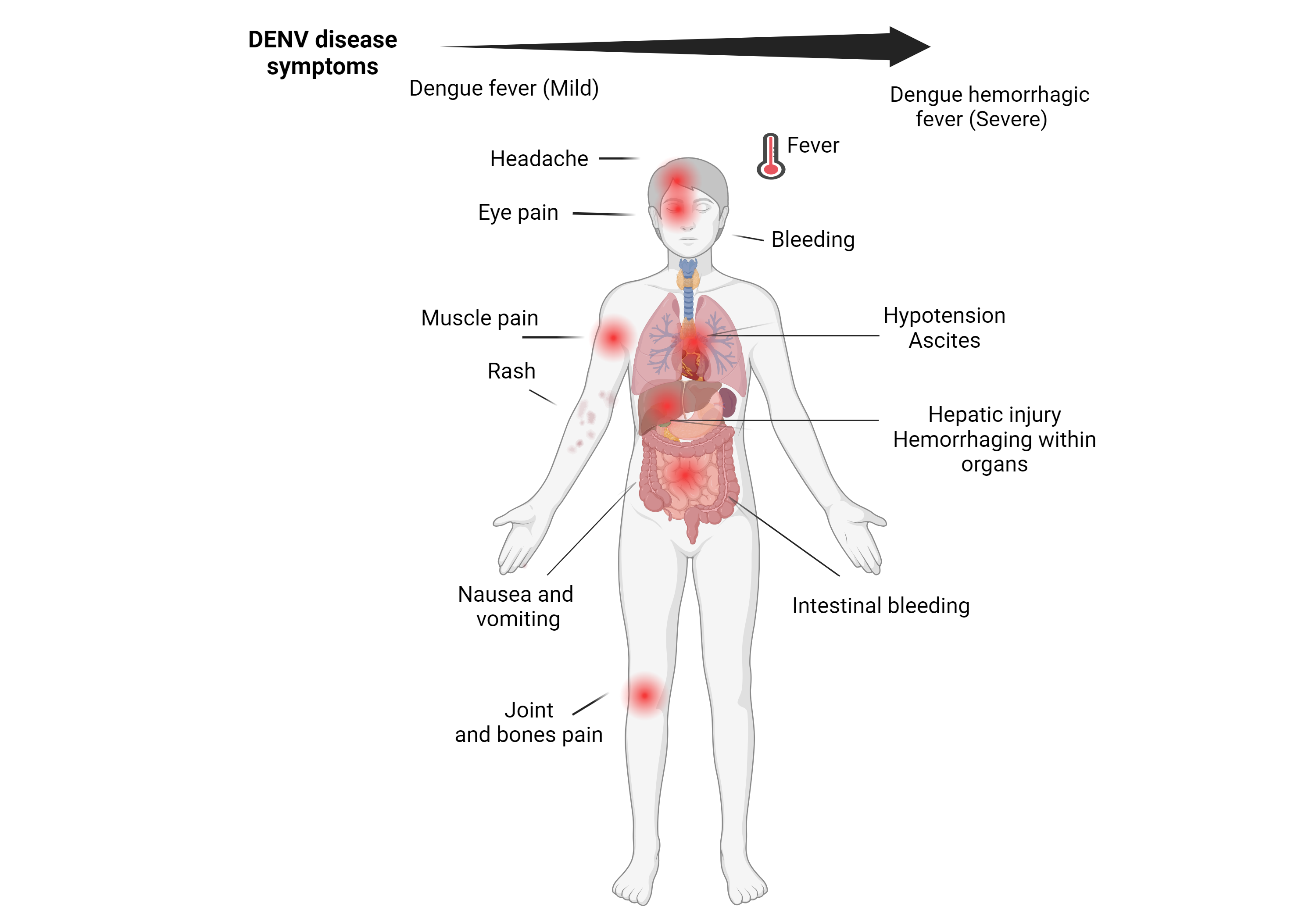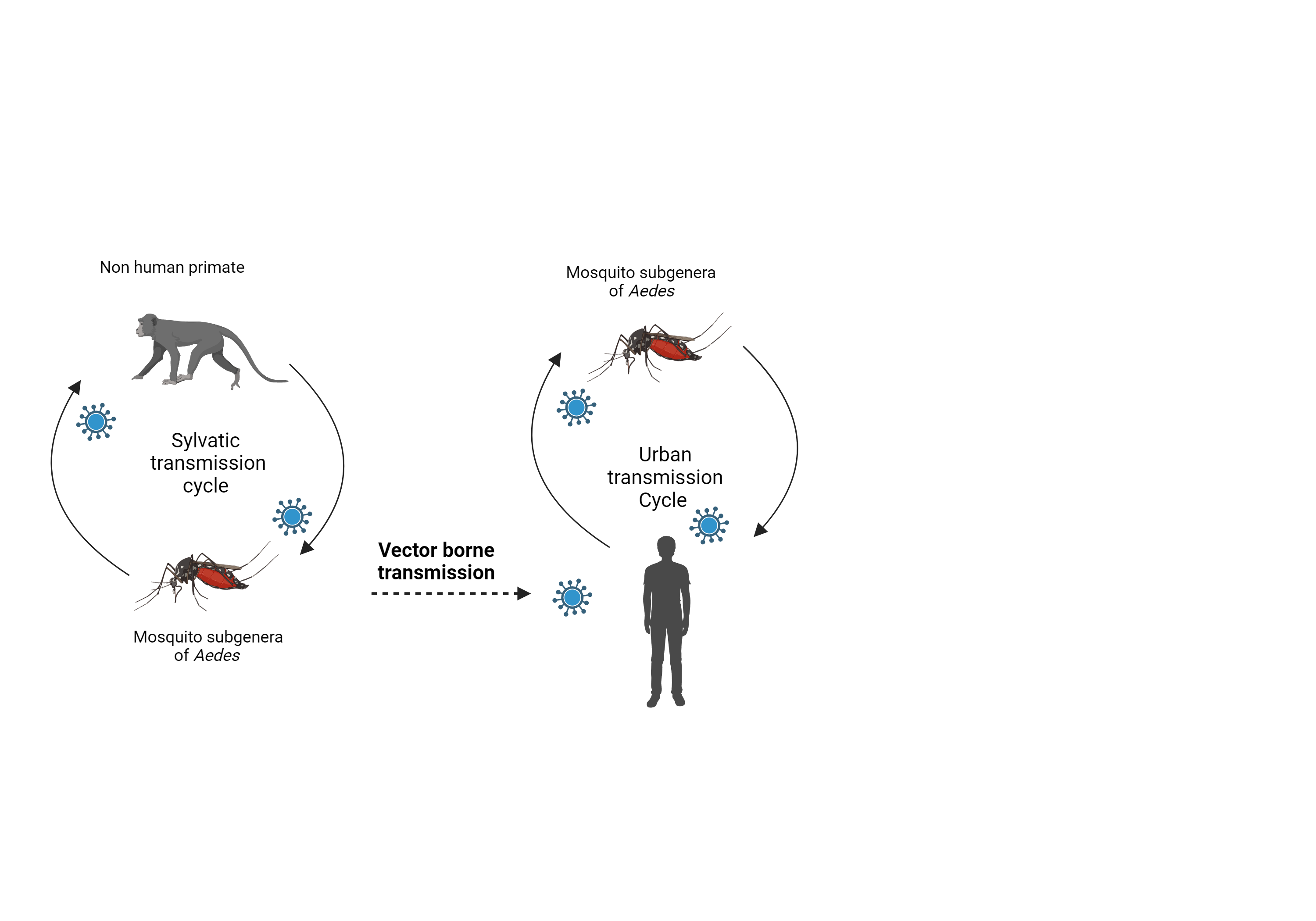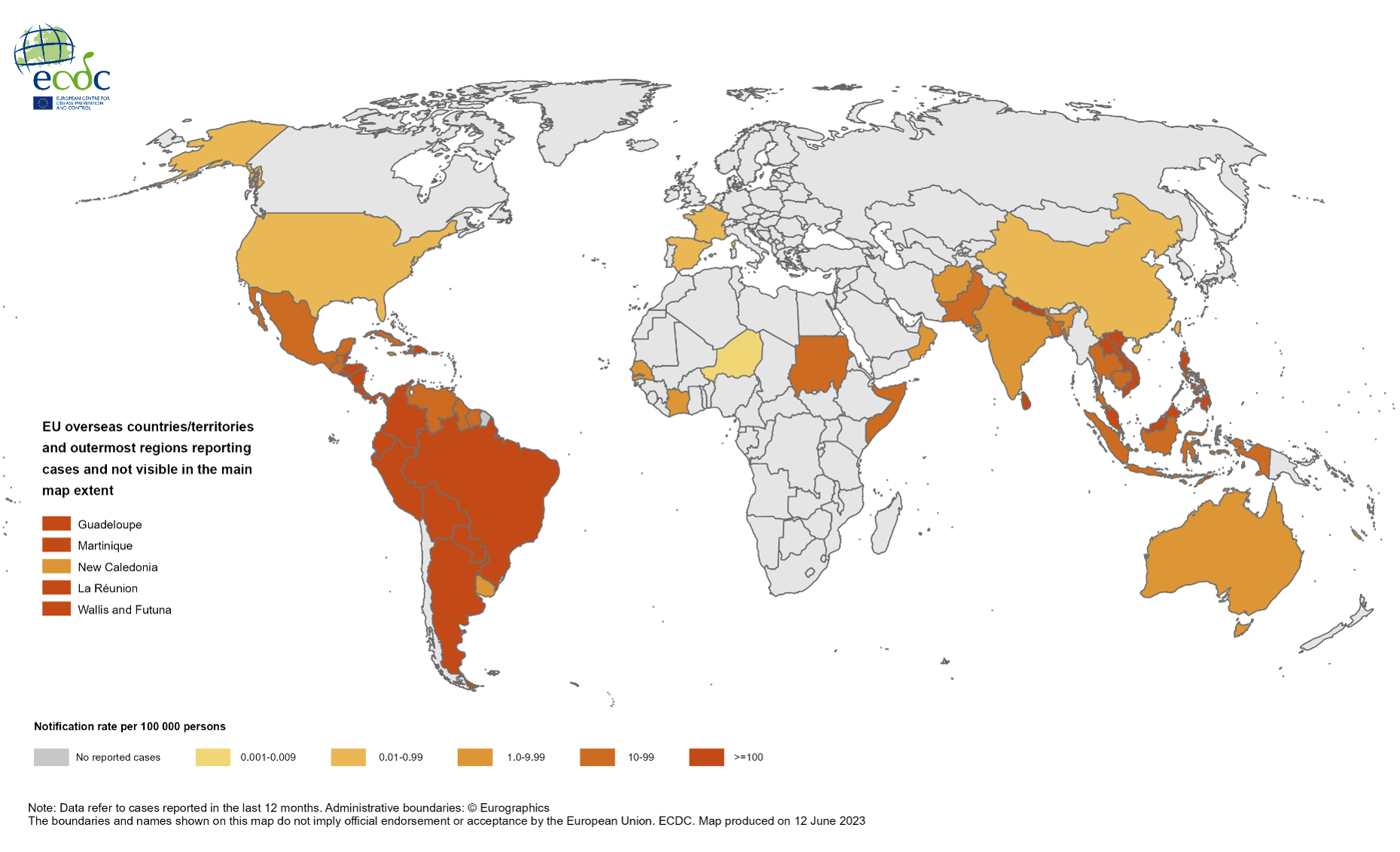Dengue virus (DENV)

The infections can cause wide of range symptoms.
The incubation time may the disease appear asymptomatic or mild.
Dengue fever (DF) is referring the mild acute febrile illness.
Critical phase refers the dengue hemorrhagic fever (DHF), characterized with usual vascular permeability and internal bleeding which may leads to hypovolemic shock, known as dengue shock syndrome (DSS).
Infection can lead to different level of seriousness depending on the virus serotypes and previous exposure with the virus.
The initial phase with no-specific like flu symptoms.
20-30% of infected patient evolute for neurological complication, such as encephalitis, meningitis or meningoencephalitis and or myelitis.
20% of cases can develop long term neurological and psychological sequalae.


It is the most common mosquito borne disease which causes up to about 100-400 millions of cases per year globally and ~20000 deaths annually.
The distribution of epidemic showed that outbreaks is happening all over the world.
There 4 serotype of DENV, DENV-1, DENV-2, DENV-3 and DENV-4. The co-circulation of multiple dengue serotypes in endemic area is common and increase the change of people developing severe manifestations such as DHF/DSS.
There are available two license vaccines, Dengvaxia® (CYD-TDV) and Denvax® (TAK003). Dengvaxia, only licensed for use in the prevention of all dengue serotypes in individuals aged 9–45 years in persons previously confirmed to have had dengue. And TAK-003 has the potential to be used for travelers to endemic areas regardless of serostatus, but still under investigation.
There is no approved antiviral.